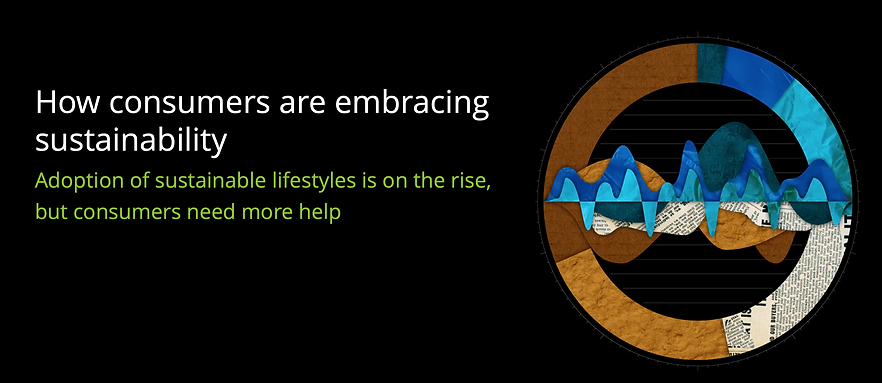INDUSTRY REPORTS
These reports provide an insight into the current behaviours shown by consumers and looking into Zara’s current changes to showcase a sustainable future for their brand.

The Mckinsey report highlights consumers need full transparency across the value chain, to regain trust within the fast fashion industry. Brands received increased scrutiny, this leading to a trend for the fashion industry in 2019 around issues of transparency. Consumers trust fell in 40% of countries, with lack of awareness on which brands to trust. Gen-Z and millennials are concerned about the issues surrounding sustainably sourced materials, 66% of consumers are willing to pay more for sustainable goods.
The report emphasises, brands are making a conscious effort to make drastic changes to regain trust from consumers, with 52% of millennials admitting they research into brands background before buying. Social media is key when it comes to transparency, brands need to be innovative and creative on showcasing the production of garments and enlightening the consumer of the product origins. Consumers are showing greater demand for transparency throughout the value chain. New Technologies can be used to inform consumers, blockchain tracks clothing through the process of production from raw material to the consumer, measuring the environmental impact of each garment sold.
This WGSN report predicts the importance of consumer awareness regarding the current climate crisis, brands should be catering to consumers currently aware of the crisis. With the high street being significantly associated with fast fashion, these brands should be transparent with consumers about the key changes to their sustainability strategies. There is a focus of moving towards circulatory, with an increased use of recycled polyester and the popularity of vegan fabrics seeing an increase of 152% in S/S 19. Businesses have a goal of producing fabrics that don’t destroy the eco-system.
Overall, brands should be educating consumers on the current issues on the climate crisis, to communicate the changes brands are making to emphasise the quality and value of products. For Zara to become more sustainable in the future the volume of production will need to be reduced with a rising cost for the product. Whilst further making a conscious decision to transform the brands image away from fast fashion.
Why sustainability within fashion is crucial for brands


This Deloitte report outlines the attitudes and behaviours of consumers regarding sustainability, the impact of the pandemic affected consumers current lifestyle choices. Consumers are becoming more innovative with their shopping habits, spending less, and choosing goods that are durable. During Covid-19, 39% of consumers adopted to buying fewer new goods than previously, moving towards adopt to reducing the number of new products bought.
The report highlights the pandemic has massively affected consumers opinions on fast fashion, buying less and more sustainably, with 40% of consumers having bought second hand or refurbished within the last 12 months. Furthermore, the report indicates businesses should make a conscious effort to connect with consumers, advising them on the brands current availability of sustainable options.